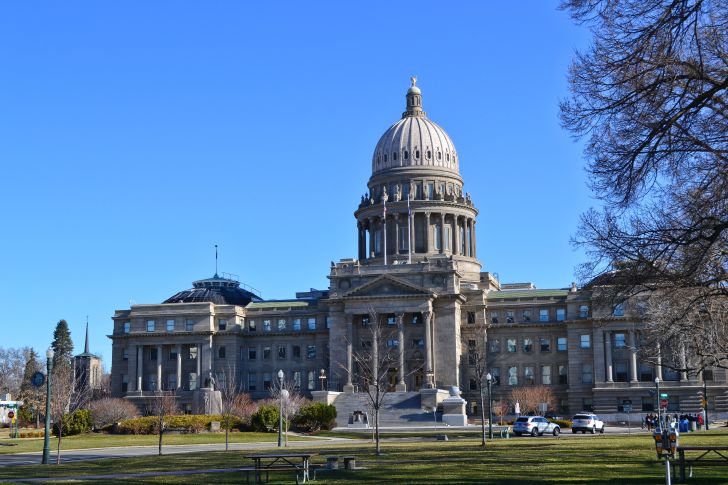Does government shutdown affect pell grant? Federal Pell Grants are available for students who need money for college. The eligible students haven’t finished a bachelor’s, master’s, or professional degree yet. Sometimes, students doing a teacher certification program after their bachelor’s degree can also get a Pell Grant.
If you’re in prison and taking classes in an approved education program, or if you’re committed after being in prison for a sexual offense, you might be eligible for a Pell Grant. A Federal Pell Grant is money for college that you don’t need to pay back, unless certain situations arise.
You might have to repay some or all of the grant under specific circumstances. Also, keep in mind that you can’t get Pell Grant money from more than one school simultaneously.
In some cases, a student who qualifies can get up to 150% of their scheduled Pell Grant amount for one school year. For instance, if you’re eligible for a $2,000 Pell Grant for the year and you attend full-time in both the fall and spring, you’ll get $1,000 for each term.
However, in special situations, you could get an extra $1,000 for attending an additional term within that year, which makes it 150% of your original award. This is often called “year-round Pell.” To learn more, get in touch with your school’s financial aid office.
Government shutdowns can have a big impact on how the government functions. Agencies that aren’t essential and can’t cover their costs through fees or other income may have to send their employees home without pay, which is called furlough. Most people will notice the effects of a government shutdown through reduced services. One of the most visible signs is the closure of national parks and monuments.
How Pell Grants Funded by the Federal Government
Before talking “Does government shutdown affect pell grant?”, it is very important to know about the Pell Grant. The Pell Grant is usually money for college that you don’t have to pay back, but there are exceptions. If you drop classes or change your enrollment after getting the Pell Grant, you might have to return it.
This grant is a helpful source of financial aid, but it’s just one part of the overall financial aid package. Jim Anderson, the financial aid director at Montclair State University in New Jersey, advises students to think about other types of aid too, like student loans (which you have to repay) or the federal work-study program (where you work for pay).
Anderson encourages all students to apply for financial aid and seek guidance when needed, as he’s seen firsthand how the Pell Grant can make a big difference in covering college costs. He also believes that this grant is valuable for any school. For a student like Anderson, who commutes and is eligible for the maximum Pell Grant, this grant can pay for almost half of their expenses.
The Eligibility Criteria of Pell Grant
To qualify for a Pell Grant, you need to show that you have a significant financial need on the FAFSA form. You must also be either a U.S. citizen or an eligible noncitizen and have not already earned a bachelor’s, graduate, or professional degree.
If you qualify for a Federal Pell Grant, you’ll receive the full amount you’re eligible for. Each year, the U.S. Department of Education will determine the amount of the grant. Your eligibility for other student aid doesn’t affect your Pell Grant amount.
If your parent passed away in Iraq, Afghanistan, or while serving in the line of duty as a public safety officer, you may be eligible for additional Pell Grant funds if you were under 24 years old or enrolled in college or career school at least part-time when your parent or guardian passed away. In this case, your eligibility will be recalculated with an Expected Family Contribution (EFC) of zero. If you are not full-time student, the government will then adjust the amount of the grant.
If you meet the criteria but your EFC is too high to receive a Federal Pell Grant, you might be eligible for an Iraq and Afghanistan Service Grant instead. To apply for these grants, you should fill out the Free Application for Federal Student Aid (FAFSA) form. Your school will use the information from the FAFSA form to determine your eligibility for Pell Grants and other federal student aid.
Remember to submit a FAFSA form each year you’re in school to maintain your eligibility for federal student aid, including Pell Grants. Here are all about Pell Grant program you should know more.
What Happens During the Government Shutdown
So, does government shutdown affect pell grant? A government shutdown occurs when certain nonessential offices of the U.S. government can’t stay open because there isn’t enough money. This happens when there’s a delay in approving the federal budget for the next year. The shutdown continues until funding laws are passed.
During a government shutdown, a lot of government activities stop. Some organizations might stay open for a while using their savings, but once that money is gone, they have to close too.
It’s important to note that while shutdowns can also happen in state, territorial, and local governments, when people talk about a “government shutdown,” they’re usually talking about the federal government.
When a government shutdown occurs, the U.S. federal government has to reduce what it does and stop non-essential activities. This often means sending non-essential workers home without pay.
However, some government services stay open during a shutdown. These are the ones that are crucial for public safety, health, and protecting property. People who work in departments related to these essential services keep their jobs. But, they might not get their payment unless there is a special bill to fund their work during the shutdown.
Examples of essential employees include those in agencies like the Drug Enforcement Agency (DEA), Transportation Security Administration (TSA), Customs and Border Protection (CBP), and the Federal Bureau of Investigation (FBI). Additionally, the Federal Reserve and the Postal Service keep running because they don’t rely on federal funds.
The Real Examples of Government Shutdown
On December 21, 2018, at midnight, the United States went into a government shutdown because President Trump and Congress couldn’t agree on funding for the 2019 fiscal year. This shutdown affected about 800,000 federal employees.
According to a fact sheet from Senator Patrick Leahy, the Democratic vice chair of the Senate Appropriations Committee, over 420,000 federal workers were supposed to keep working even though they wouldn’t get paid, and more than 380,000 federal employees were put on furlough, meaning they were sent home without pay. This shutdown lasted for 35 days, making it the longest government shutdown in U.S. history.
The Impact – Does the Government Shutdown Affect Pell Grant?
Does government shutdown affect pell grant? But what does this mean for you and your student loans? The impact largely depends on the duration of the shutdown. For short shutdowns that last only a weekend or a few days into the week, there typically isn’t much effect.
However, during longer shutdowns, such as those seen in 2013 or 2018, some government services, like national parks and military death benefits, come to a halt. On the other hand, essential functions such as tax collection and management of student loans continue without interruption.
A government shutdown typically doesn’t affect your eligibility for new federal financial aid, such as Pell Grants, FSEOG, or Direct student loans. The processing of your FAFSA continues, and most Department of Education financial aid websites remain operational.
Additionally, federal student loan servicers continue to function during a government shutdown. You can still make your student loan payments and receive customer service support if you have any questions.
Since 2009, the Department of Education has contracted with private companies to manage the repayment of most federal student loans. These private companies operate independently of the federal government, so they remain open and operational. This means your student loan payments are still due, unless any existing payment pauses are extended.
Furthermore, these contracted student loan servicers can assist you with deferment or forbearance requests, help you change your repayment plan, discuss loan forgiveness options, and work with you on Public Service Loan Forgiveness (PSLF).
However, if you’re applying for a loan discharge due to medical disability or seeking student loan forgiveness for teaching in a critical needs area, you may encounter delays. It is because the processes typically require government involvement, which is under the pressure of shutdown.
Challenges faced by Students During a Shutdown
If you’re in the process of applying for financial aid for college, a government shutdown can potentially add some delays to the process. Typically, new loans submitted through the Free Application for Federal Student Aid (FAFSA) are under the process of review, but a government shutdown can slow down these procedures.
The type of loan you’re applying for matters as well. For instance, if you’re applying for a Direct Subsidized Loan through the FAFSA application, it should generally be unaffected. However, if you’re seeking a Direct Consolidation Loan, which involves a separate application, you should anticipate some delays.
Does government shutdown affect pell grant? A government shutdown can have several impacts on your financial aid:
- Completing the FAFSA: You can still submit FAFSA applications during a government shutdown. However, there may be delays in verifying eligible noncitizen status, and obtaining copies of tax transcripts might be challenging.
- Applying for a New Loan: The process of applying for a federal student loan, especially if you’re seeking a Direct Consolidation Loan outside of the FAFSA, could face delays.
- Applying for Loan Forgiveness: Loan servicers should still be available to assist with applications for student loan forgiveness programs. Government employees working toward Public Service Loan Forgiveness (PSLF) could defer payments while furloughed. But, these periods of deferment would not count toward PSLF.
- Grants: Students participating in grant-funded programs may not receive their grant money until the government shutdown ends. This delay can also affect FAFSA-awarded grants.
Long Term Shutdown
In general, a government shutdown is unlikely to directly affect most children or the day-to-day operations of their schools. Schools receive funding in advance to cover expenses for the upcoming year. So, a brief government shutdown typically doesn’t harm schools. However, there are some specific impacts on the education system during a government shutdown.
Approximately 1,200 school districts on federal land, such as military bases or Native American reservations, operate on a different funding schedule and could be immediately affected by a government shutdown.
Many employees of the U.S. Department of Education may be placed on temporary leave during a shutdown. This could hinder their ability to provide technical assistance or support to states and school districts.
Certain programs, like Head Start, which receive federal grants on a monthly basis, may not receive new funding if the government shutdown extends into the next month. While most families need not worry about immediate concerns during a government shutdown, advocacy efforts are ongoing to ensure that Congress fulfills its responsibility to fund the government and prevent disruptions to essential services.
During a government shutdown, certain programs remain in a state of uncertainty until new legislation is passed. This means that some students who are part of grant-funded programs or rely on grants for their education may not receive their funds until the government resumes normal operations.
In summary, while some financial aid processes can continue during a government shutdown, there are potential delays and disruptions that can impact students seeking aid, loans, or grant funding. It’s important to stay informed and plan accordingly during such situations.
What To Do If You Lose Your Pell Grant?
Losing your financial aid can indeed be stressful. But, there are alternatives to help you pay for school even without federal financial aid. You may still be eligible for non-federal scholarships and other forms of financial assistance.
It’s important to note that losing financial aid isn’t always a permanent situation. In certain cases, you can take specific actions to regain your eligibility. Understanding what steps to take after your school suspends your financial aid is important. It helps you secure your education so you can follow the next semester and beyond.
The Alternatives to Fund Education
If you’ve lost your federal financial aid or Pell Grant, don’t worry, there are alternative ways to fund your education:
- Scholarships and Grants:You can still explore scholarships and grants from your school or private organizations. These programs are separate from federal financial aid, so your suspension won’t affect your eligibility. Spend time searching scholarship search engines and applying for opportunities from various sources.
- Student Loans: If your income has increased, or you’ve lost school-specific financial aid, you might still be eligible for federal student loans. However, if you’ve lost access to all federal financial aid, consider private student loans. Keep in mind that private loans often require a credit check. Moreover, you may need a co-signer, like a parent, if you don’t have a strong credit history. Alternatively, you can explore income-share agreements, which provide funding in exchange for a percentage of your income after graduation.
- Part- or Full-Time Work:Depending on your schedule and circumstances, consider part-time or even full-time employment while in school. Even if you can’t work much during the academic year, a full-time summer job can help cover some college expenses.
- Consider a More Affordable Option: If your federal financial aid suspension is affecting your current school, consider transferring to a more affordable option. Online schools, community colleges, or state universities may offer cost-effective alternatives. If you lose your eligibility due to poor grades, use this opportunity to improve your academic performance.
Before transferring, verify how many of your credits will transfer to your new school. Also, check whether they will still count toward your degree. Different schools may categorize certain courses differently, so it’s essential to plan your transition carefully.
Conclusion
Does government shutdown affect pell grant? Although you should ultimately receive the grants awarded to you through FAFSA, including the Pell Grant, there’s a possibility that you might experience longer wait times than usual. For other financial aid options, the potential delays and disruptions can impact students seeking aid, loans, or grant funding. It’s important to stay informed and plan accordingly during such situations.
FAQ
Does a government shutdown affect Pell Grants?
Generally, government shutdowns do not directly impact Pell Grants. These grants are mandatory spending, which means the laws funded it and separate the fund from annual appropriations bills. As a result, even during a government shutdown, Pell Grants continue to be disbursed to eligible students without major interruptions.
Will my Pell Grant application be affected by a government shutdown?
In most cases, the application process for Pell Grants, known as the Free Application for Federal Student Aid (FAFSA), remains unaffected by government shutdowns. You can still submit your FAFSA, and the government will processed as usual.
What about other types of federal financial aid?
While Pell Grants are generally safe from government shutdowns, other federal financial aid programs, like work-study and certain loans, may not. During a shutdown, some federal agencies responsible for administering these programs may operate with reduced staffing, potentially causing delays in processing applications or answering inquiries.
Can I still receive Pell Grant disbursements during a government shutdown?
Yes, Pell Grant disbursements typically continue without interruption during a government shutdown. These grants are critical for many students, and policymakers generally ensure that they are funded even when other government functions are halted.
Should I be concerned about future financial aid availability if a shutdown persists?
Prolonged government shutdowns can create backlogs and delays in various federal processes, including financial aid administration. While Pell Grants themselves are not immediately at risk, it’s essential to monitor the situation and stay informed about any potential disruptions in other federal financial aid programs.
Sources:
- Everything You Need to Know About the Pell Grant
- Government Shutdown: Definition, Example, Impact on Economy
- Government Shutdown and Student Loans: How It Affects You
- How do government shutdowns affect student financial aid?
- What to do if You Lose Your Financial Aid




